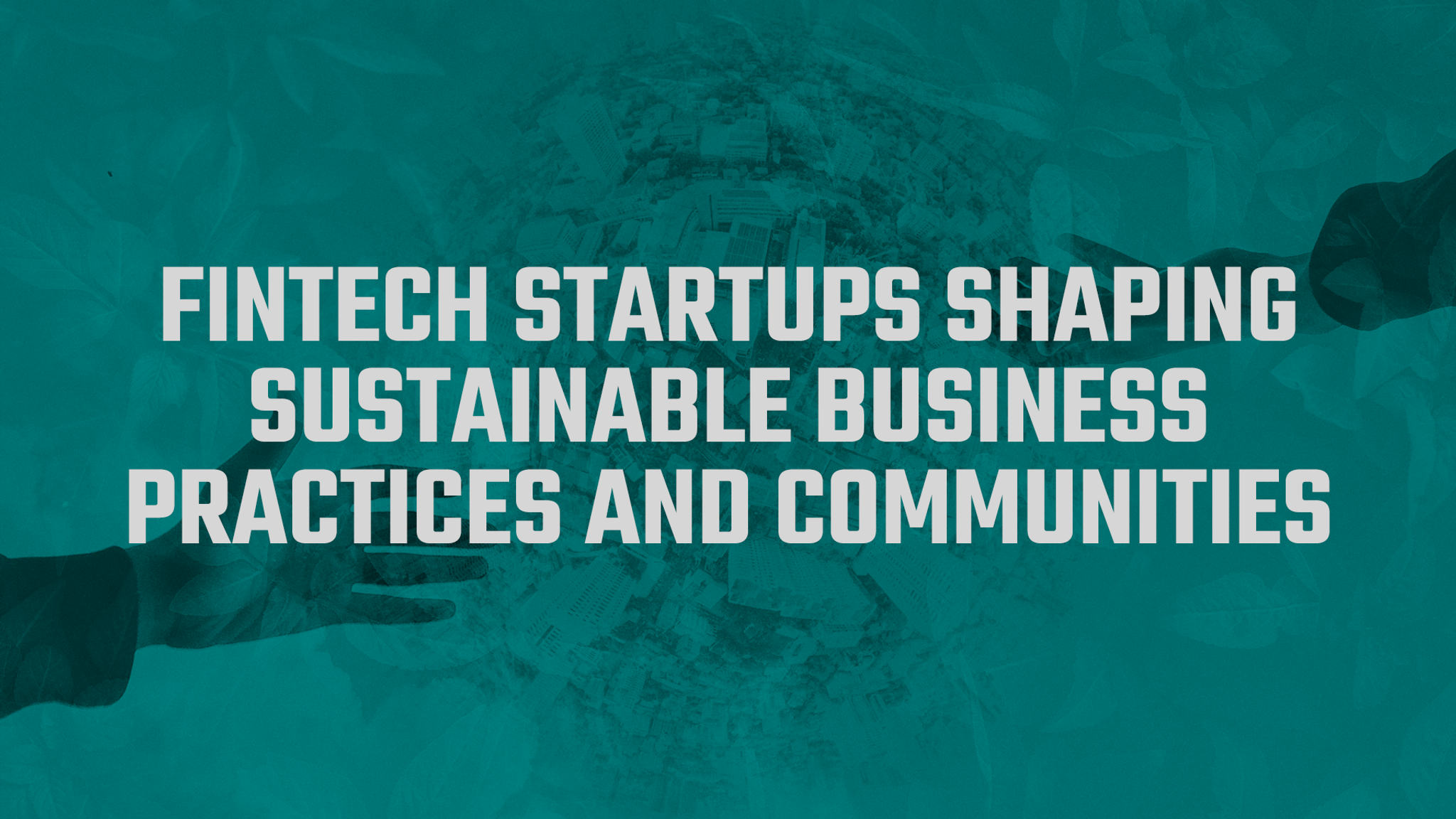Creating sustainable business practices and communities with fintech
Brian Collins
Published on

Investing in sustainable fintech is one of the most efficient and impactful ways consumers can address the pressures our world is facing today. Startupbootcamp’s Sustainable Fintech Fund gives investors the chance to support such companies and facilitate change.
Among the fund’s goals is to ensure the adoption of sustainable business practices and the fostering of sustainable communities. We see this playing out by working towards two of the United Nation’s Sustainable Development Goals (SDGs). The first of these is the development of sustainable cities and communities (SDG 11). The second is encouraging responsible consumption and production (SDG 12).
For many businesses, working towards these goals won’t be optional. It’ll be a necessity, either due to regulatory demands or consumer preference.
Take the emergence of sustainable cities. Plans to reach net-zero emissions will include measures to improve building insulation and lower the environmental impact of construction. Entire sectors will have to adjust. They’ll be no choice in the matter.
Then, consider the changing sentiment of consumers. Polling suggests customers – particularly younger ones – are willing to pay more for products they consider to be sustainable. Ensuring products fit this description is good for business – particularly given both consumers and wholesale buyers are increasingly more likely to boycott suppliers on environmental grounds.
So, fintechs that can help businesses work towards these goals will be an important piece in the puzzle. And, there are many startups in this sector seeking to allow businesses to capitalise on their innovation.
How does this look in practice? Consider Australian startup certifiedby which offers businesses, among other services, a basic framework dubbed the “Carbon Neutral Checklist”.
This allows firms to create an initial benchmark of their environmental performance. Companies answer questions such as whether they consider minimising vehicle and electricity use. The checklist also helps businesses question whether they generate too much waste, rely too much on air travel and whether they do enough to encourage employees to use public transport.
Such insights can be presented to conscious consumers to prove sustainable credentials.
Of course, sustainability-minded consumers can only stay that way if they too have an indication of their own environmental footprint. Fintechs such as Canada-based Nava Ventures can help spenders see how transactions impact the planet.
The startup allows users to collate all of their financial accounts in one place – including investments and cryptocurrency wallets. It then calculates the carbon impact of each transaction and provides ESG ratings for investments. A portion of the firm’s revenue is donated to support the purchase of carbon offsets.
For many consumers, shopping sustainably is a reward in itself, but Epic Impact, a UK-based fintech, provides additional incentives for customers. After linking their bank account, users can shop at a list of provided sustainable sellers, earning rewards for doing so. These can then be put towards items such as reusable water bottles or even renewable energy to power homes.
All three of these startups are investments of Startupbootcamp from last year’s programme.
